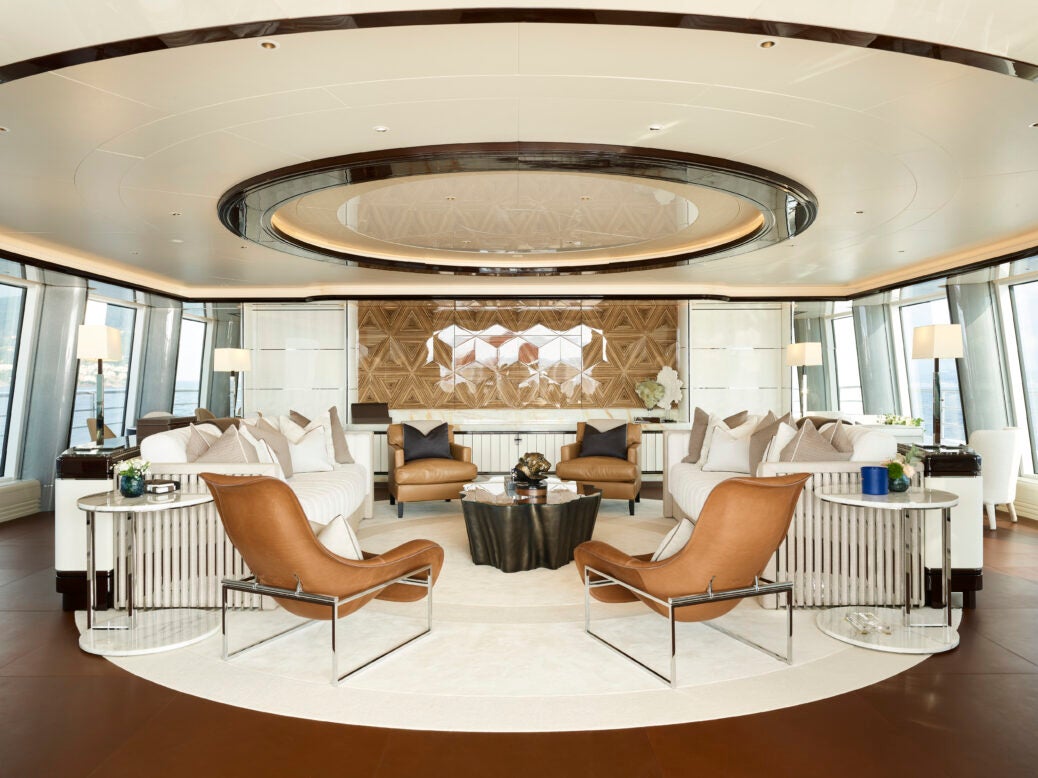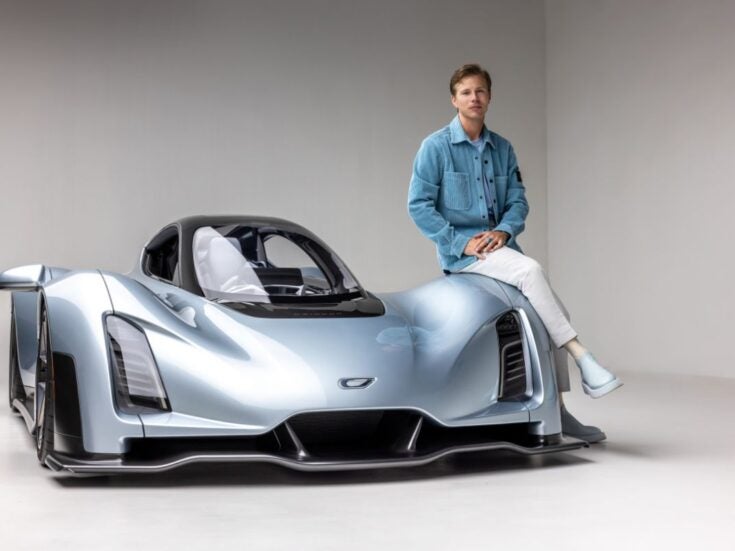
Post-pandemic, how will the luxury industry’s leading players build bonds with their most discerning UHNW clients? By Robin Swithinbank
In the opening pages of Beyond Great, published by Boston Consulting Group in the aftermath of the first wave of Covid-19, the company’s chief executive Rich Lesser offered this antidote to the challenges of our time: ‘Difficult environments,’ he noted, ‘have historically proven to be more fertile periods for innovating and shifting competitive positions.’
Since the pandemic hit, luxury brands, particularly those targeting UHNWs, have been in fertile mood. They have been obliged to find innovative ways to seduce and retain their clients, a notoriously demanding cohort.
Broadly speaking, many appear to have worked. Business is good. UK sales of luxury watches, to give one example, were up 34 per cent in July 2021 over the same month in 2019, when wealthy international visitors were still flooding into the country.
How? Not by reinventing the wheel. The fundamentals of so-called ‘white glove’ client servicing haven’t changed. UHNWs still want products, services and experiences that are unique to them, whether they’re marketed as bespoke, customised or personalised. See Rolls-Royce’s headline-grabbing £20 million Boat Tail, which some say is now in the hands of Beyoncé and Jay-Z. UHNWs also still want access to talent, shaped around their own tastes and passions. And they want relationships with people and brands they trust and admire.
But that doesn’t mean nothing’s changed. Even before the pandemic, the motivators be-hind UHNW buying decisions were evolving. For instance, increasing numbers are favouring brands with a clear ‘purpose’ – or, in plain English, those that stand for something that’s perceived to be morally upright, beyond the primary product or service they offer. Brands that can demonstrate sustainability, or that they support conservation or humanitarian causes, now have an edge.
Aino-Leena Grapin, chief executive of the luxury yacht designer Winch Design, says her company used the pandemic to source more sustainable materials for use in their projects: ‘Our clients want something beautiful, and if it’s sustainable, they like knowing they’ve had a positive impact.’
The size of the opportunity has changed, too. According to Knight Frank’s Wealth Report 2021, there are more than 520,000 UHNWs (people with a net worth of more than $30 million) in the world today, an in-crease of 2.4 per cent year-on-year and growing. The report calculated that the figure would rise by roughly 27 per cent over the next five years, bringing the total to 663,000. The UHNW demographic is changing, too.
Knight Frank’s report suggests that Asia will account for 24 per cent of UHNWs by 2025, up from 17 per cent 10 years before. Women now account for more of the world’s wealthy, too. Research produced by Relevance, a digital marketing agency specialising in businesses that target UHNWs, estimates that there are now 29,300 UHNW women in the world, up more than 50 per cent since 2016.
‘This means you need a different kind of language,’ says Muriel Penoty, a director at Relevance. ‘If you’re talking to women, you have to talk first about beauty and then about practicality and what’s behind the product. Men care about practicality, too, but for them it’s more about how well engineered a yacht or a watch is and how reliable it will be.’
The Far East focus plays well for luxury brands, particularly smaller independents with British heritage. ‘They don’t want the brands their parents wanted,’ says Isabel Ettedgui, owner and creator of the Mayfair- based luxury brand Connolly, of her Chinese clients. ‘They care about how things are made and they like that we only make in the UK and Europe.’ Before the pandemic, Connolly had begun hosting art events for young Chinese based in London. ‘The average age was 24, 25,’ says Ettedgui. ‘Young, wealthy Chinese consumers are much more sophisticated than everybody once thought.’
But perhaps the greatest changes are in how brands are managing client relation-ships. Luxury has been slowly digitalised over the past decade, and with it has come what many brands are calling ‘casual’ and ‘inclusive’ luxury themes accelerated by Covid and long periods during which consumers have been confined to their own homes.
Luxury is now more likely to be channelled through instant-access platforms. ‘All my clients send their customers pictures of their products via WhatsApp now,’ says Lara Mingay, owner of luxury PR firm LM Communications. ‘It’s quick, personal and how UHN-Ws expect to communicate – and it works.’
Introducing digital tools into the brand- client relationship has become even more important as the UHNW demographic has changed. ‘Virtual reality has been used to tar-get the next generation in particular,’ says Penoty. ‘The new generation making their own decisions are happy to take a virtual tour of a yacht or house on the other side of the world, particularly if it means taking one less flight.’
Some brands have reached further. Italian fashion label Brunello Cucinelli uses its website to tell the story of ‘human-centred capitalism’, amalgamating its purpose with seamless digital content anyone, anywhere can consume. Some – Chanel, Cartier, Gucci and Dior – have even taken to producing their own podcasts. According to Penoty, ‘UHNWs are very busy and always doing two things at the same time, one of which is often listening to podcasts.’
These shifts have pushed some luxury brands to completely rethink and even merge their retail and client servicing strategies. ‘The retail experience for high-end luxury clients has changed,’ says Daniel Compton, the UK’s country general manager for the Swiss watch brand Audemars Piguet. ‘People don’t need to be in a retail environment to know what they want. They have a lot of knowledge before they come and see us.’
Prompted by this, Audemars Piguet has introduced a global network of stylish, largely private venues called ‘AP House’, an airy Soho House-style concept that prioritises experience over conventional retail. Compton over-sees the London venue on Bond Street, where watch display cases are secondary to a bar, a dining area and a grand piano clients are encouraged to play. ‘AP House is not about selling,’ says Compton of the first-floor space. ‘It’s about offering an experience, great food and entertainment, and making clients feel at home in a discreet environment.’
No doubt this is a challenging period, punctuated not just by a pandemic but also by rapid societal, economic and demographic changes. But UHNW clients are still there, and even growing in number. In a fight for survival, brands that figure out how to service them best will prove the most competitive.
Aino-Leena Grapin, CEO, Winch Design
‘Selling a watch or a diamond necklace is very transactional, but building a yacht can take three years, so our clients’ experience can be very long. The process has to be as enjoyable as ownership of the product – our presentations have to be the highlight of their week, which is setting the bar high considering our client base! Like our products, these aren’t one-size-fits-all. We have to think like they think, build trust, work on a personal level, respect confidentiality and be ready to travel at a moment’s notice.
Sometimes you end up somewhere for two weeks when you hadn’t even packed a toothbrush. It’s never about sending Andrew Winch in on the back of an elephant. We always try to surprise our clients with our creativity. This is their dream we’re creating. During the pandemic, we invested in cameras so we could film presentations for our clients to watch in their own time.

But lots of our clients said they didn’t want Zoom calls. Ultimately, there’s nothing that replaces seeing the client and them seeing us. We also invested time in sourcing sustainable materials – the client wants something beautiful, and if it’s sustainable, they like knowing they’ve had a positive impact.’
James Morrell, managing director, Rothschild & Co UK Wealth Management
‘Great service isn’t a set menu. Our clients don’t have the same needs at the same time. Sometimes it’s about being thoughtful and sending them a book we think they’ll find interesting; other times it’s an introduction to someone else in our network, or perhaps arranging a loan at short notice.

During the pandemic, we’ve embraced video calls and found they can make it easier to “see” clients more regularly and “meet” the wider family. We’ve also hosted numerous online client events, including private wine tastings with members of the same family dialling in from across the world. One time we did a live cook-along with Angela Hartnett, which involved delivering more than 1,000 portions of perishable food to clients’ homes.
Occasionally, we partner with complementary brands where our network can provide clients with unique “money can’t buy” experiences or unparalleled access. For example, we held a joint-client Rothschild wine-tasting event with a world-leading Swiss watchmaker where one client was able to obtain a watch for which they’d been on a waiting list for more than five years. As a rule, we constantly ask three questions: “Would the client be impressed by this?” “Have I made this better for the client?” “Is that what ‘exceptional’ looks like?”’
Daniel Compton, country general manager UK, Audemars Piguet
‘We recently opened AP House on Bond Street. The concept is about experience first – meaning entertainment and hospitality, rather than selling – and about building relationships. We employ people with backgrounds in hospitality. Yes, it’s important they know the product, but it’s about making people feel great. It’s about making people feel in our home with us, rather than in a showroom.
So we have a great kitchen, a great bar and a great sound system – we even have a Steinway. Some of our clients are very high-level musicians and sometimes they do impromptu sessions. We cater for birthdays and anniversaries, or host private events for clients to come and watch football. And always we give them the best possible food and entertainment. It’s not just in our four walls.
If our clients are welcoming friends or family to London for the first time, we can help organise spa treatments or visits to the Shard, or we can go to our clients’ houses and set up the same experience there. AP House isn’t visible from the street, so it’s extremely discreet – our clients know us and know there won’t be any leaks. And these things are unconditional. Obviously, they’re for existing clients, but there’s isn’t a sliding scale depending on how much you spend on a watch.’
Patrick Gallagher, president of sales, marketing and services, NetJets
‘First and foremost, safety is our highest priority and our protocols exceed industry standards. That’s reflected in our response to Covid-19 – we’re making an annual investment of $16 million into ensuring the safety of our owners and employees, rigorously cleaning all our aircraft.
When a flight request is received, our owner services teams ensure every aspect of the flight is planned, coordinated and confirmed, providing a seamless travel experience unique to each owner. That can mean arranging on-board celebrations for special occasions, providing toys and games for younger passengers, or catering for owners’ pets. This helps us create exceptional travel experiences.

We had to put our in-person events on hold during the pandemic, but we’re looking to return to them soon. That might be an exclusive invitation to one-of-a-kind events such as the Monaco Grand Prix or Art Basel, or a private dinner with tennis legend Roger Federer.
After every flight, NetJets owners receive a flight satisfaction survey inviting them to rate every aspect of their experience and the service they received. From the design of our cabin interiors and selection of on-board snacks to programme enhancements and the way we do business, NetJets owners’ feedback influences everything we do.’
Feature Image: Winch Media
More from Spear’s
‘It becomes something more than a book’ – Inside the £16,500 Sistine Chapel publication
Spear’s Wealth Insight Forum 2021: Watch on demand now








